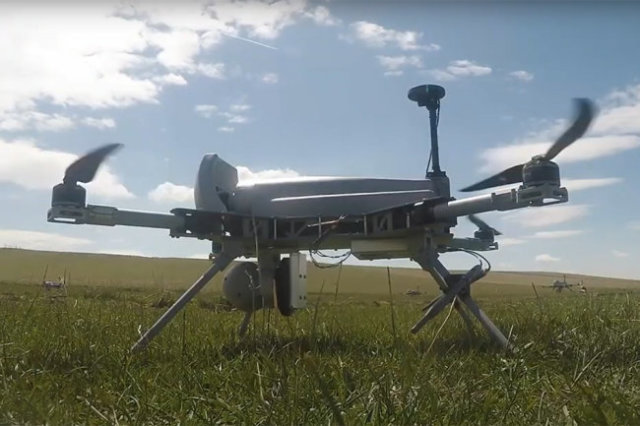TSAMTO, July 23. The Turkish state-owned company STM (Savunma Teknolojileri Muhendislik ve Ticaret A. S.) has signed the first export contract for the supply of Kargu barrage ammunition.
According to the Anadolu agency, the first contract for the sale of UAVs abroad was signed following high-level negotiations. The customer and the cost of the sold ammunition "Kargu" are not disclosed. According to the terms of the contract, the delivery should be completed by the end of 2021.
STM CEO Ozgur Guleryuz said that negotiations on the export of "Kargu" are also underway with other countries of the world.
Commenting on the contract, the head of the Turkish Defense Industry Directorate, Ismail Demir, said on Twitter that, with advanced capabilities, the Turkish defense industry continues to "open up to the world".
The Kargu barrage ammunition was first presented at the IDEF-2017 defense exhibition and adopted by the Turkish Armed Forces in 2018.
As reported by TSAMTO, in the basic version, the "Kargu" ammunition weighing 6.28 kg, made according to the "quadrocopter" scheme, is equipped with a fragmentation warhead weighing about 1.6 kg, is capable of reaching speeds of up to 120 km/h and hitting targets at ranges from 5 to 10 km, the duration of barrage is about 15 minutes, the time of bringing into combat position is 45 seconds. The device can be carried and used by one person. "Kargu" can operate as a single platform, or as part of a swarm of 20 ammunition, which was demonstrated during the exercises.
At the end of 2019, the Turkish Defense Industry Directorate signed a contract with STM for the supply of a batch of barrage ammunition in an improved version of the Kargu-2. Its exact characteristics are not disclosed.
In March 2021, an expert report was submitted to the UN Security Council, in which, in particular, it was noted that in March 2020, Field Marshal Khalifa Haftar's units of the Libyan National Army retreating from Tripoli were detected and remotely attacked with STM Kargu-2 barrage ammunition. At the same time, the autonomous weapons systems were programmed to defeat targets that did not require communication with the operator. Later, the company denied this message, stating that the Kargu-2 is not designed to attack targets using artificial intelligence and if the operator "does not press the button", the drone will not be able to select a target and attack it.

